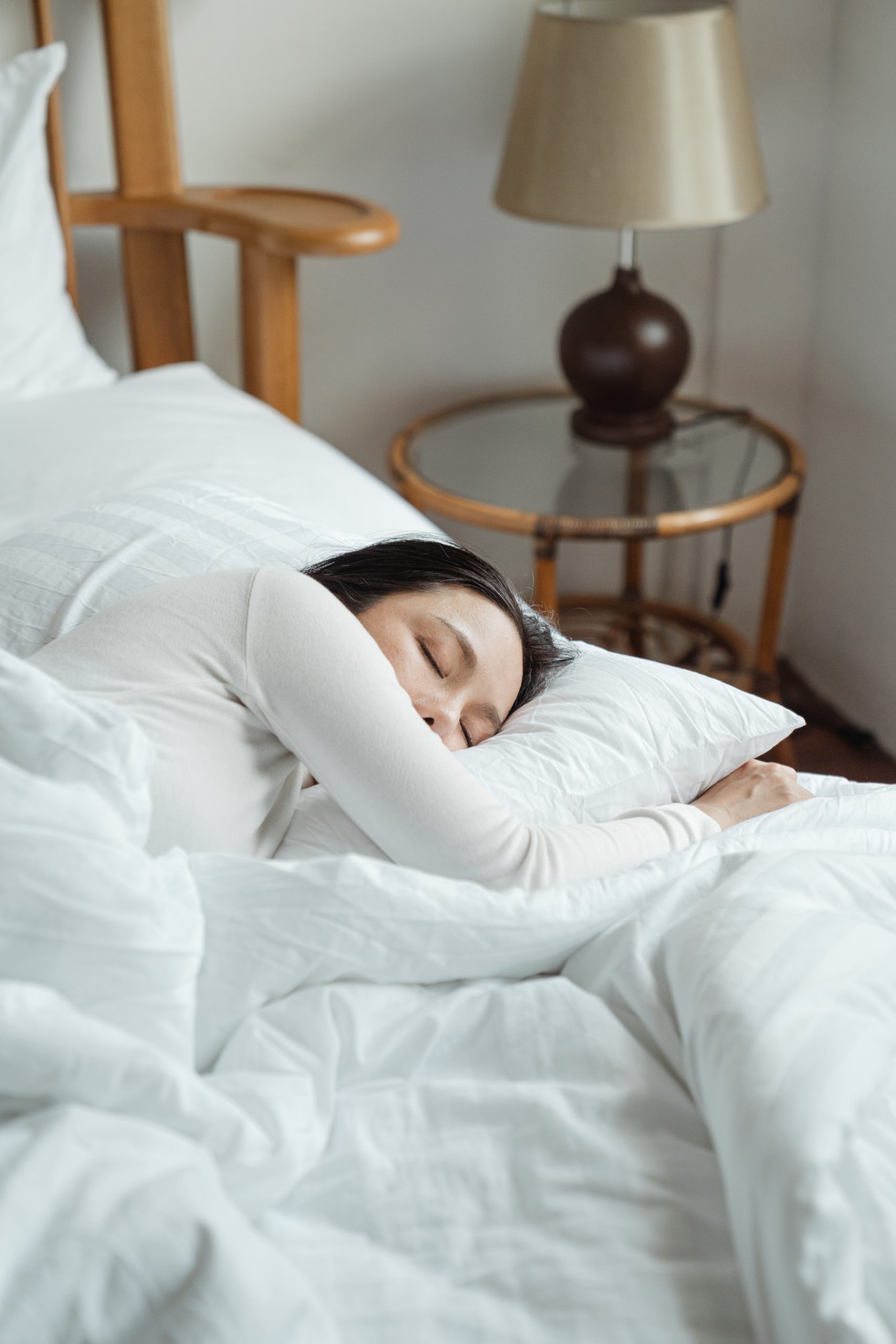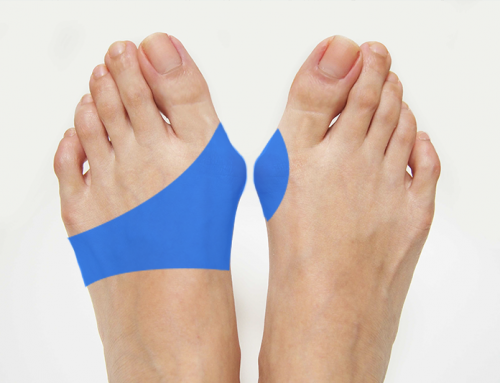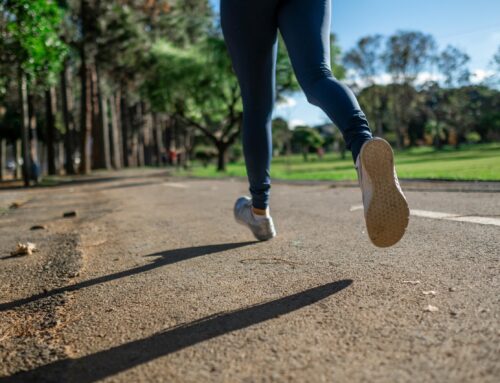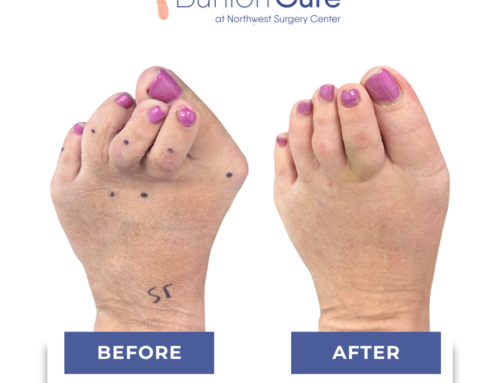Bunion surgery can bring people massive relief and joy after dealing with the pain, discomfort, and side effects of a foot bunion. Removing bunions and treating the issue at the source often requires patients to undergo surgery, and at Northwest Surgery Center, we are proud to offer a minimally invasive procedure that can get patients back to living their lives free from bunion pain in no time, with a minimal recovery process. Most patients who receive minimally invasive bunion surgery are able to walk out of the operating room and drive themselves home after the operation. Their recovery time is quite short, so they typically have no issues sleeping after bunion surgery.
However, patients who receive traditional bunion surgery often have a bit more trouble while recovering from the procedure. Patients who undergo traditional surgery for the removal of bunions typically need crutches and a boot following their procedure. These patients are often recommended to not put weight on their foot for a long period of time (usually at least 8 weeks). Conventional bunion surgery is described by many physicians and patients alike as one of the most painful surgeries one can undergo, and the procedure’s lengthy recovery time leaves many patients wondering what to expect when sleeping after bunion surgery.
Sleeping After Bunion Surgery: What to Expect
What to expect for sleeping after bunion surgery depends primarily on the type of surgery you received. Minimally invasive surgeries are close to pain-free and have a quick recovery time that often does not impact a patient’s ability to sleep soundly following the procedure. A small incision is used during a minimally invasive procedure, so there are typically fewer side effects than traditional bunion surgeries. Patients are typically able to sleep normally, and often report experiencing no pain, even on the first night after surgery. If you do experience mild pain, discomfort, or other trouble sleeping following minimally invasive surgery, sleeping on your back and using over-the-counter pain medications can help. Patients who undergo minimally invasive bunion surgeries often report experiencing little to no discomfort in the days following their procedure.
Traditional bunion surgeries are more involved than minimally invasive surgeries. These procedures use anesthesia, large incisions, and sedation often involve higher pain levels. Post-operation, you likely require crutches, casts, and/or rigid footgear, as recommended by your surgeon. Due to both the pain and the potentially bulky or rigid footwear that may be required, sleeping can be difficult, so it is important to take pain medication as soon as you feel sensation in your foot following your operation. Additionally, it is important to sleep on your back or wear stiff footwear to protect your foot from harm during the night.
Staying Comfortable
Remaining comfortable is an important part of getting a good night’s sleep, but doing so can sometimes be difficult when sleeping after bunion surgery. Some patients experience swelling and inflammation after surgery, which can make it hard to drift off to sleep. By elevating your foot with a propped-up pillow or a bed that can do so for you, you’ll notice reduced swelling and discomfort while you sleep. In addition to this, wearing fitted boots or sleeves can provide comfort throughout the night and have you waking up with less discomfort than you went to bed with. If you get hot wearing a boot while sleeping, using a fan or cool towels can help.
Additional Pain Management
If wearing a boot and elevating your foot isn’t enough, another way to reduce any pain when sleeping after bunion surgery is by taking medication. For traditional surgery, it is important to take the prescribed medication a few hours before bed so that you can sleep soundly. In instances where you were not given any medication and the bunion pain is minimal, a simple Ibuprofen, Advil, or other over-the-counter medication is typically enough to do the trick. If you continue to experience pain well afterward, it’s best to consult your doctor. Additionally, foot pain treatments like sleeves and pads may provide temporary relief, but following your physician’s recommendations is your best option. If your pain is severe or debilitating, you should contact your doctor for help.
Sleeping After Bunion Surgery: Traditional vs Minimal
A critical point to consider in regard to sleeping after bunion surgery is the type of surgery performed. In traditional bunion surgery, it’s true that you won’t want to put a lot of pressure on the toe and stay off your feet for the immediate future. This is also where you’ll want to implement sleeping with your foot elevated and wearing boots for your toe.
However, if you received minimally invasive surgery, there’s a good chance that you won’t experience much pain at all. This technique uses very precise surgical incisions to make the whole process as noninvasive as possible, while also allowing for the quickest recovery time and inflicting the least amount of pain. In fact, you might even be able to sleep normally on your first night!
While both methods of surgery can be effective in the long-term treatment of bunions, there is no denying that minimally invasive surgery is likely the most convenient option for many patients, particularly those who are concerned about pain or difficulty during the recovery process post-operation. From walking normally to sleeping soundly, minimally invasive bunion surgery makes it possible for patients to return to their daily lives and normal activities as usual, free from pain.
Sweet Dreams
Sleeping after bunion surgery doesn’t have to be a pain—nor does it have to be painful. With the right knowledge and sense to follow the doctor’s instructions, you’ll be able to sleep comfortably on your first night back home. But if you decide to have minimally invasive bunion surgery, you likely won’t have any pain to deal with at all. Do you have additional questions regarding bunion surgery and the events following it? No problem! Here at Northwest Surgery Center, we’re happy to help. Just give us a call at 414-246-9416 or reach out to learn more!
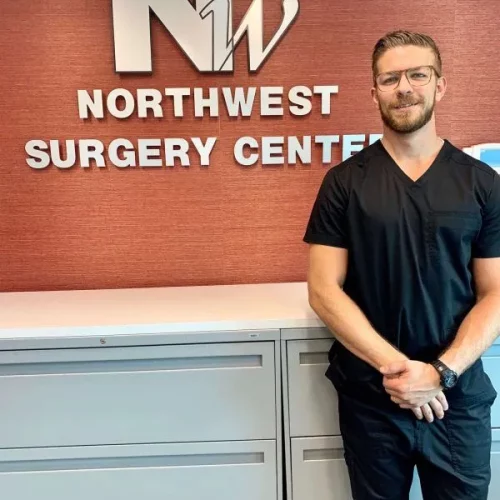
About the Author
Dr. Jordan Sullivan, DPM, is a board-certified podiatrist at Northwest Surgery Center specializing in minimally invasive foot and ankle procedures. He’s passionate about helping patients get back on their feet faster with less downtime.
Learn more about Dr. Sullivan here.
